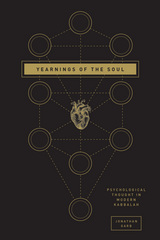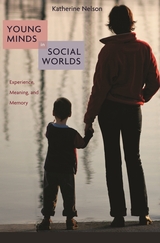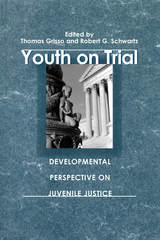4 start with Y start with Y

Garb follows the gradual disappearance of the soul from modern philosophy while drawing attention to its continued persistence as a topic in literature and popular culture. He pays close attention to James Hillman’s “archetypal psychology,” using it to engage critically with the psychoanalytic tradition and reflect anew on the cultural and political implications of the return of the soul to contemporary psychology. Comparing Kabbalistic thought to adjacent developments in Catholic, Protestant, and other popular expressions of mysticism, Garb ultimately offers a thought-provoking argument for the continued relevance of religion to the study of psychology.

p>Young Children Learning provides vivid insight into the way young children think, talk, and learn from their mothers. It reveals the richness of the home as a learning environment and shows how much children can learn through the ordinary conversations of everyday life.
The book describes a research study in which four-year-old girls were tape-recorded talking to their mothers at home and to their teachers at nursery school. At home the children range freely over a wide variety of topics--work, the family, birth, growing up, death. They talk about plans for the future and puzzle over such diverse topics as the shapes of roofs and chairs, the nature of Father Christmas, and whether the queen wears curlers in bed. In many conversations the children are actively struggling to understand a new idea or the meaning of an unfamiliar word. These "passages of intellectual search" show the children to be persistent and logical thinkers.
In sharp contrast, the conversations between these same children and their nursery school teachers lack richness, depth, and variety. The questioning, puzzling child is gone: in her place is a child who seems subdued and whose conversations with adults are mainly restricted to answering questions rather than asking them. These observations show how strongly young children can be affected by the move from one setting to another, and they suggest that, even at the nursery stage, children reserve their best thinking for outside the classroom, with a resulting compartmentalization of the knowledge they acquire at school.
The book challenges the widely held belief that parents need to learn from professionals how to educate and bring up their children; above all, it persuades us to value parenting more highly and to have respect for the intellectual capabilities of young minds.

Katherine Nelson re-centers developmental psychology with a revived emphasis on development and change, rather than foundations and continuity. She argues that children be seen not as scientists but as members of a community of minds, striving not only to make sense, but also to share meanings with others.
A child is always part of a social world, yet the child's experience is private. So, Nelson argues, we must study children in the context of the relationships, interactive language, and culture of their everyday lives.
Nelson draws philosophically from pragmatism and phenomenology, and empirically from a range of developmental research. Skeptical of work that focuses on presumed innate abilities and the close fit of child and adult forms of cognition, her dynamic framework takes into account whole systems developing over time, presenting a coherent account of social, cognitive, and linguistic development in the first five years of life.
Nelson argues that a child's entrance into the community of minds is a slow, gradual process with enormous consequences for child development, and the adults that they become. Original, deeply scholarly, and trenchant, Young Minds in Social Worlds will inspire a new generation of developmental psychologists.

READERS
Browse our collection.
PUBLISHERS
See BiblioVault's publisher services.
STUDENT SERVICES
Files for college accessibility offices.
UChicago Accessibility Resources
home | accessibility | search | about | contact us
BiblioVault ® 2001 - 2024
The University of Chicago Press









